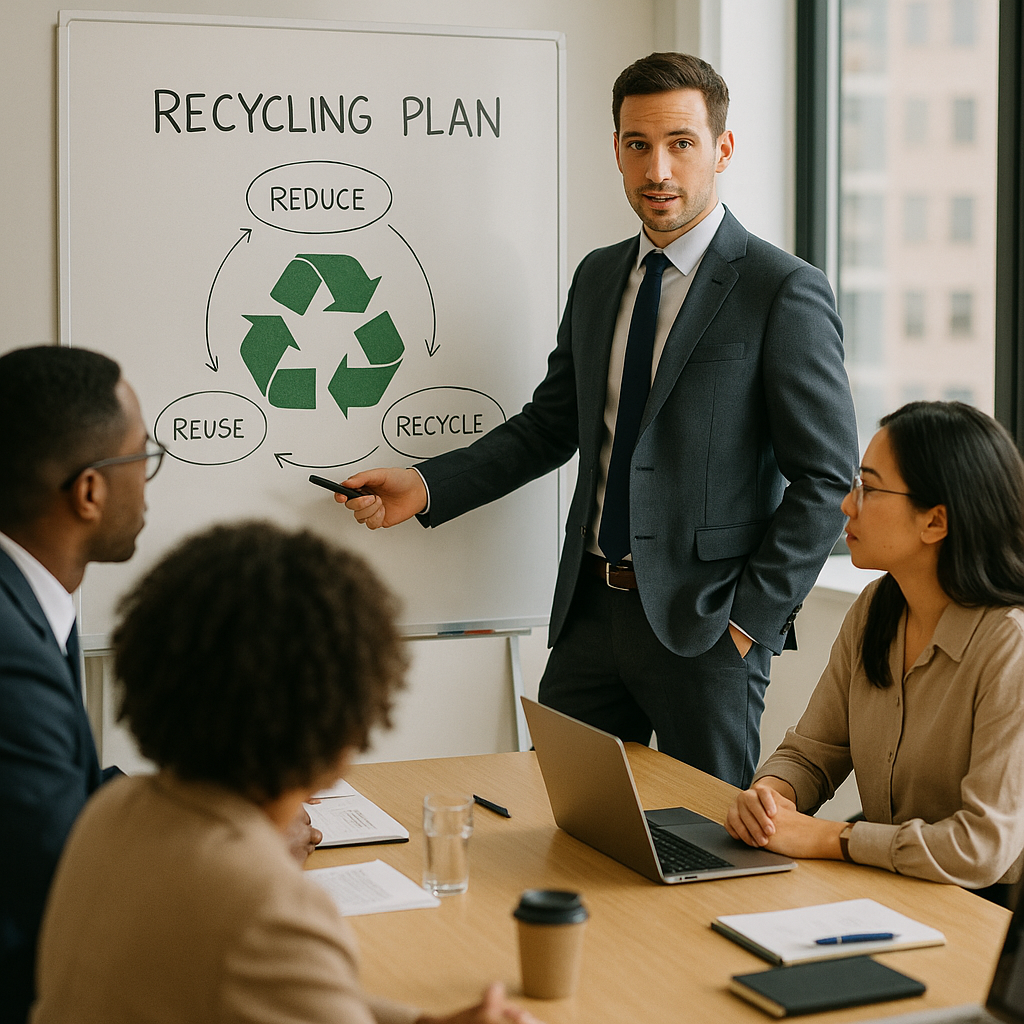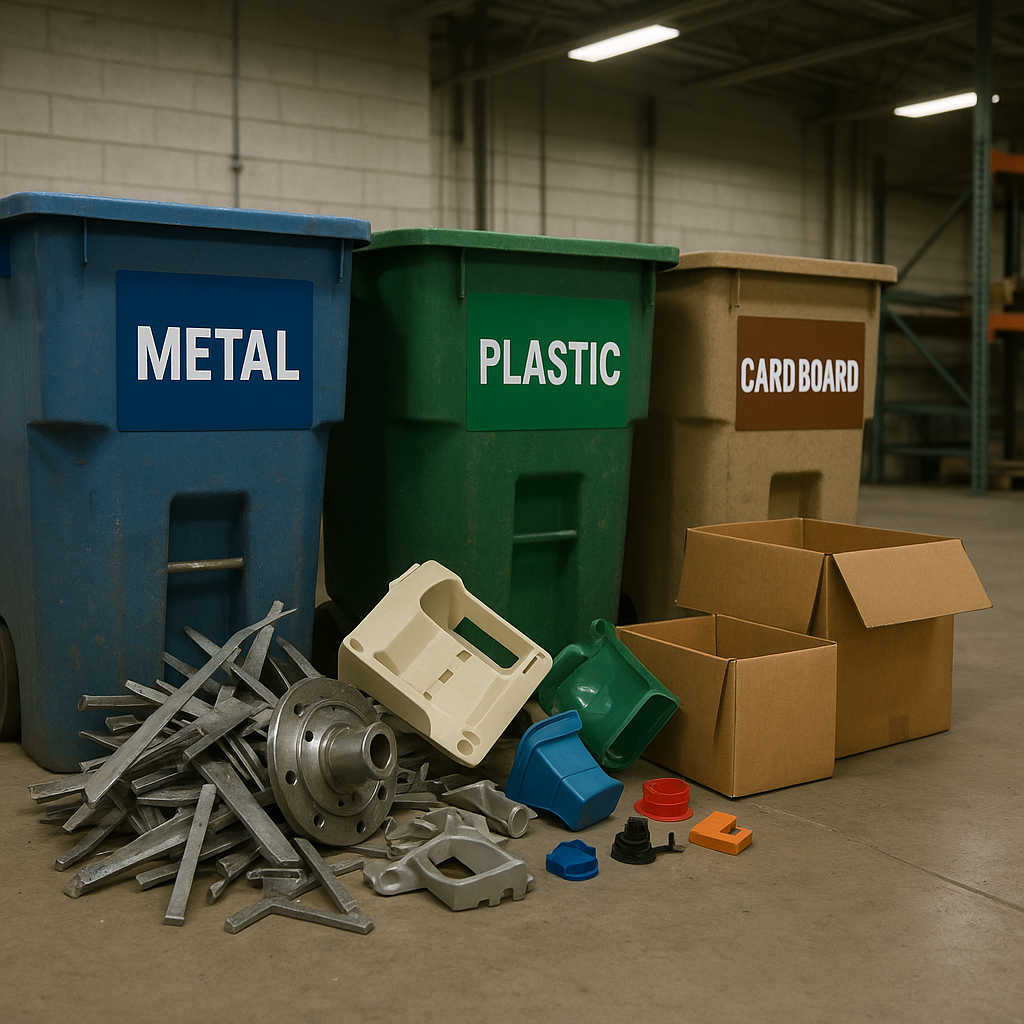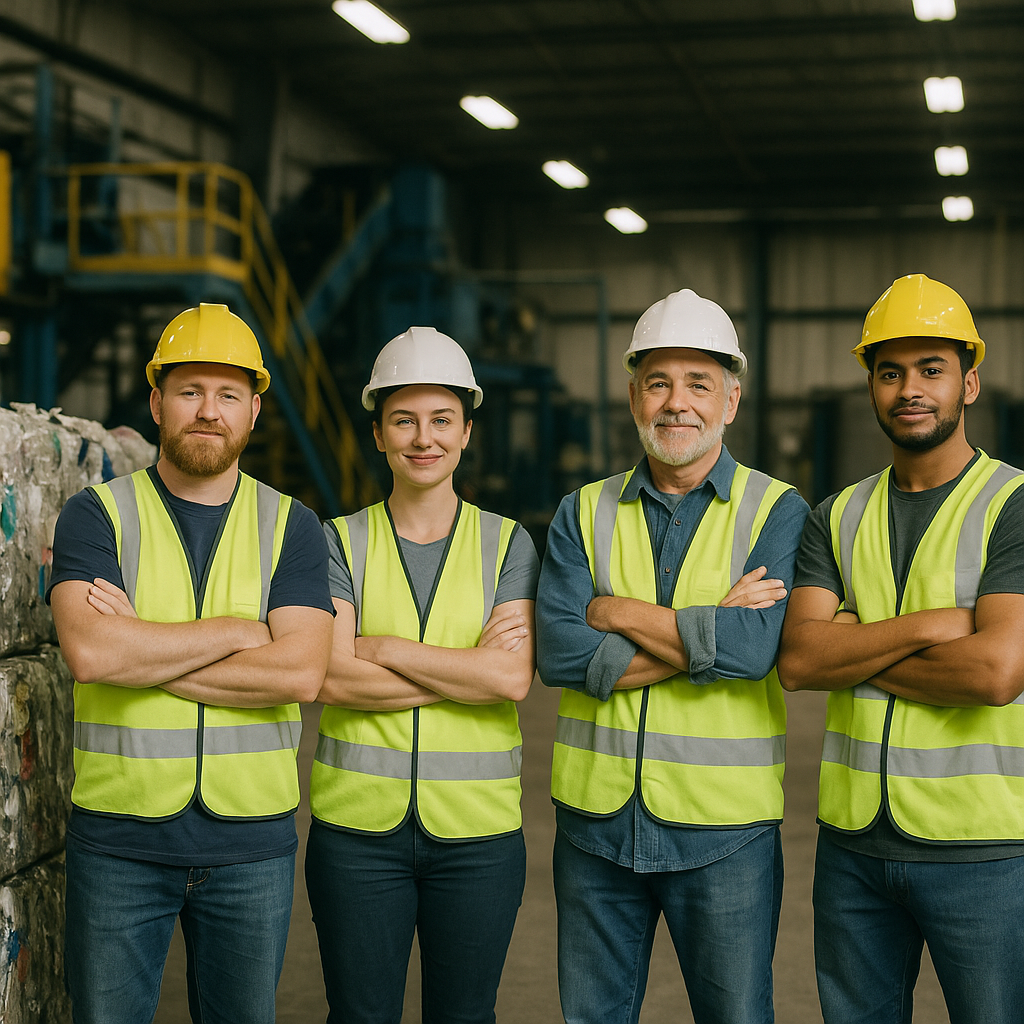5901 Botham Jean Blvd, Dallas, TX 75215
What Are the Options for Recycling Manufacturing Waste in Fort Worth?
August 8, 2025Manufacturing businesses in Fort Worth face increasing pressure to manage waste responsibly while maintaining operational efficiency. Fortunately, the Dallas-Fort Worth metroplex offers several specialized recycling solutions for industrial waste streams. Companies like Evergreen and Mid America Paper Recycling have established robust services specifically designed for manufacturing waste management.
These industrial recycling providers handle a wide range of materials, including paper, cardboard, plastic, and other manufacturing byproducts. The primary advantage for businesses is twofold: environmental sustainability and financial benefit. Most providers focus on maximizing recycling revenue potential while simultaneously reducing solid waste costs for manufacturing operations.
Fort Worth’s manufacturing sector has access to comprehensive waste audits, equipment placement options, and customized collection schedules. These services help businesses transform waste management from a cost center into a potential revenue stream while meeting sustainability goals. The recycling infrastructure in the area continues to expand as more manufacturers recognize both the environmental and economic advantages of proper waste stream management.
How Can Businesses Optimize Their Manufacturing Waste Recycling Program?

Manufacturing facilities generate significant waste daily. Without proper systems in place, valuable materials can end up in landfills, while disposal costs rise. A strategic approach to waste management can transform this challenge into an opportunity for both environmental stewardship and cost savings.
Beginning with a comprehensive waste audit lays the foundation for an effective recycling program. This process reveals what materials you’re discarding and in what quantities. Texas manufacturing companies that implement waste audits have achieved excellent results, with some reducing waste by up to 40% and saving hundreds of thousands in disposal costs annually.
Conduct a Thorough Waste Audit
A waste audit provides essential baseline data that guides all subsequent waste reduction efforts. Start by collecting and analyzing your waste over a representative time period. This reveals recoverable materials that are currently being sent to landfills.
- Gather a dedicated team with representatives from different departments
- Collect waste samples from key areas of your facility
- Sort and weigh materials by category (metals, cardboard, plastics, etc.)
- Document findings with photographs for future reference
- Calculate potential diversion rates and cost savings
The sorting process often reveals surprising insights. Many manufacturers find that 30-40% of their “trash” consists of easily recyclable materials. One medium-sized plastic parts producer in Houston reduced waste by 52% after their first audit, cutting disposal costs by $75,000 annually.
Implement Strategic Container Placement and Clear Signage
Proper bin placement significantly impacts recycling rates. Containers should be conveniently located where waste is generated. Pairing recycling bins with trash receptacles prevents recyclables from being discarded as general waste.
Clear, consistent signage is crucial for proper sorting. Use simple visual cues along with text to help employees quickly identify the correct bin. Photos of acceptable items are more effective than text-heavy instructions. Consider the specific waste streams in each department and customize your approach accordingly.
Prioritize Employee Training and Engagement
Even the best-designed recycling program will fall short without proper employee training. Staff must understand not only what goes where, but why recycling matters to your organization.
Develop a comprehensive training program that includes:
- Initial kickoff events that clearly communicate program goals
- Hands-on demonstrations of proper sorting techniques
- Regular refresher sessions to address common mistakes
- Integration of recycling procedures into new employee onboarding
- Recognition for departments showing exceptional participation
Creating a “Green Team” with representatives from different departments builds ownership and helps overcome resistance. These champions spread positive attitudes about waste reduction throughout the organization.
Partner with Experienced Recycling Providers
Selecting the right recycling partner greatly impacts program success. Look for service providers with experience in manufacturing environments who offer customized solutions for your specific waste streams.
When evaluating potential partners, consider:
- Their ability to handle your specific waste materials
- Flexibility in service schedules to accommodate your operations
- Technology and reporting tools they offer
- Educational resources available to support your program
- Transparent pricing structure with potential rebates for clean materials
Regular communication with your recycling provider ensures continuous program improvement. Schedule periodic reviews to discuss contamination issues, changing waste volumes, or new recycling opportunities.
Monitor Progress and Make Adjustments
Implementing a successful recycling program is an ongoing process. Regular monitoring helps identify successes and areas for improvement.
Establish simple tracking systems using digital spreadsheets or specialized waste tracking apps to record disposal amounts by category. Create visual dashboards displaying weekly comparisons to help teams quickly identify trends.
When follow-up audits reveal issues, make timely adjustments rather than waiting for major problems. If contamination rates increase in recycling streams, immediately investigate root causes and implement targeted training.
[[artifact_table]] Typical Cost Savings from Manufacturing Waste Audit Implementation [[/artifact_table]]By implementing these strategies, manufacturing businesses can significantly reduce waste, lower disposal costs, and demonstrate environmental leadership. The combination of accurate waste assessment, strategic container placement, comprehensive employee training, and partnerships with experienced recycling providers creates a foundation for sustainable waste management that benefits both your bottom line and the planet.
What Types of Manufacturing Waste Can Be Recycled in Fort Worth?

Fort Worth offers comprehensive recycling solutions for a wide range of manufacturing waste materials. Local recycling facilities process various industrial byproducts, helping manufacturing operations reduce their environmental footprint while potentially creating new revenue streams.
Paper waste is one of the most commonly recycled materials in Fort Worth. Recycling centers accept various paper grades, including old corrugated containers (OCC), office paper, sorted white ledger, mixed paper, and paper bags. Manufacturing facilities that generate paper waste can benefit from dedicated collection programs that maximize efficiency.
Plastic waste from manufacturing processes is also highly recyclable. Fort Worth recycling facilities handle various types, including HDPE and other industrial plastics such as packaging materials, shrink wrap, and containers used in manufacturing operations.
Metal waste recycling is crucial for Fort Worth’s manufacturing sector. Recycling companies process aluminum, steel, and other metal scraps that might otherwise end up in landfills, including production offcuts and damaged components that don’t meet quality standards.
In addition to these common materials, Fort Worth recycling services manage specialized manufacturing waste. Rare earth materials from electronics manufacturing can be recycled through programs like those at MP Materials, which operates a facility processing recycled rare earth feedstock for magnet production.
Manufacturing facilities generating liquid waste have several recycling options in Fort Worth. Specialized centers process expired products, off-spec batches, and other liquid industrial waste, ensuring proper handling and regulatory compliance.
Fort Worth also offers solutions for hazardous and non-hazardous waste, ensuring compliance with environmental regulations while processing these carefully handled materials.
Many local recycling companies offer customized waste audits for manufacturing facilities, identifying recyclable waste streams and developing tailored recovery programs. This approach maximizes recycling potential and may reduce disposal costs.
[[artifact_table]] Types of Recyclable Manufacturing Waste in Fort Worth [[/artifact_table]]The recycling landscape in Fort Worth continues to evolve, with companies like Evergreen and International Paper leading efforts to divert manufacturing waste from landfills. Through structured recycling programs, manufacturing operations can transform waste management from a cost center into a potential revenue source while contributing to sustainability goals.
Conclusion: Embracing Efficient Manufacturing Waste Recycling in Fort Worth

Recycling manufacturing waste in Fort Worth offers a powerful dual advantage. Environmentally, it conserves natural resources, reduces greenhouse gas emissions, and lowers pollution impacting local communities. Economically, it delivers significant cost savings through reduced disposal fees and potential new revenue from recyclable materials. Many Fort Worth businesses have already discovered that what was once considered waste can now be a valuable resource.
The path to effective manufacturing waste recycling begins with assessment and planning. By partnering with local recycling experts, manufacturers can identify waste streams with the highest recycling potential and implement customized programs to efficiently capture these materials. Through continuous improvement and monitoring, these programs can adapt to changing production needs while maximizing environmental and financial benefits. For Fort Worth’s manufacturing sector, this represents not only corporate responsibility but also a competitive advantage in a sustainability-focused marketplace.
Ready to transform your manufacturing waste into opportunity? Contact Okon Recycling at 214-717-4083 for a comprehensive waste assessment, and discover how custom recycling solutions can benefit your bottom line while supporting a more sustainable future for Fort Worth.
